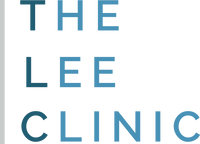
“What’s this I hear about linking sleep deprivation to obesity?”
I thought you’d never ask! It’s a well-known fact that you’re not you when you’re tired. Being drowsy throughout the day can lead to a lack of focus, an irrational temperament, and zombie-like shuffling. The issue isn’t getting up on the wrong side of the bed: it’s sleep deprivation, and not getting the proper quantity or quality of sleep can lead to much more dire concerns than just an attitude check. Research has shown a direct correlation between sleep deprivation and obesity within people of all ages, especially adolescents.
“Where’s the science behind that claim?”
Sleep deprivation is defined as getting less than 7.5-8 hours of sleep per night. When you are sleep deprived, even by a few hours a night, there is a disruption of the production of your “hunger hormones”. Two such hormones exist within your body: leptin is a hormone released from fat cells that increases satiety (the state of feeling full), while grehlin is a hormone released in the stomach that stimulates hunger. Leptin is mostly produced while we sleep, so less sleep can lead to less appetite suppression throughout the day, and especially at night.
“So no snacking. I can do that, right?”
That’s true; you can, and you should! However, there’s no denying this gets harder as the day goes on. It is a well-researched fact that willpower is a finite resource we use day-to-day in our lives. Many studies have linked willpower to a muscle that can get fatigued from overuse. Sleep deprivation decreases your willpower reserves and blunts activity in the human frontal cortex – the part of the brain that controls our impulses – therefore greatly increasing your appetite desire. What’s worse is that your insulin resistance is highest at night, which means that the calories you consume are more likely to be stored as fat instead of used as energy. So, as you constantly suppress the urge during the day to nibble on sweet or savory treats, you drain your willpower in the process. Combine that with sleep deprivation and it becomes severely more difficult to say no to that extra-large helping of ice cream in the evening. And once you cave, that ice cream is going to hit you extra hard.
“How do I fight off these cravings and increase appetite suppression for the long run?”
Simple; get some sleep! But more importantly, practice having a regular sleep schedule. That means going to bed at the same time every night and getting up at the same time every morning. Melatonin is a naturally occurring chemical produced in the pineal gland in the brain that helps control your sleep and wake cycle. The chemical is regulated by darkness, so if you get up at night do your best to keep the lights in your bathroom of low intensity (preferably a red or orange hue if you can).
Aside from having a proper sleep schedule, there are a few things to consider:
- Turn off electronics two hours before bed, and use a night shift or flux filter to get rid of blue light.
- Do not eat after 7:00pm; it confuses your circadian rhythm, which every organ in your body runs on. If you eat at midnight, your brain is telling your stomach and pancreas to think it’s day time, and falling sleep will come much slower to you.
- No caffeine after 2:00pm. Yes, this will be difficult.
- Take 30 minutes out of your schedule to take a walk – light exercise definitely helps!
The Lee Clinic can help you enter that state of deep sleep your body’s been craving, and therefore help suppress your appetite and keep you healthy! We offer a melatonin supplement for people over the age of 40 where natural melatonin has a decreased production in your body. The Lee Clinic also offers the Ideal Protein program, which provides healthy and delicious alternatives to help you understand your body’s wants and needs, as well as finally lose that unwanted weight.
